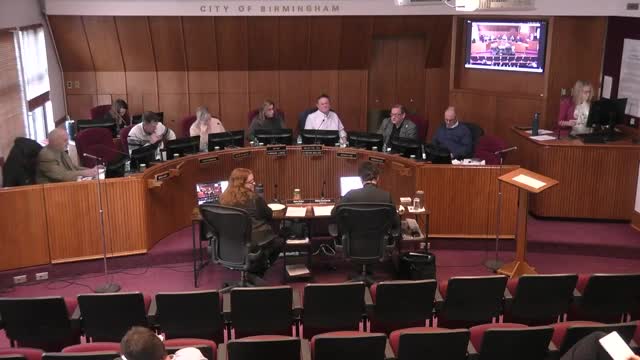Engineering lays out unimproved‑road priorities, aims to replace all 4‑inch public mains by 2032
Get AI-powered insights, summaries, and transcripts
Subscribe
Summary
Engineering unveiled a multi‑year unimproved‑road priority map that pairs water/sewer work with surface upgrades and said replacing all public 4‑inch water mains could take until about 2032 at the current pace.
City Engineer Melissa Cota presented a mapped priority list for unimproved roads and an updated multi‑year capital improvement program that ties road conversion to water and sewer upgrades.
Cota said staff use a 0–300 infrastructure score to rank projects (surface, sewer, water), and they group projects so underground utility replacements and surface improvements can be sequenced together. She reported a planning assumption of roughly 0.75 miles of unimproved‑road utility work per year under current resources; if the city doubled that pace to 1.5 miles per year the program could finish far sooner.
Cota said the city has pockets of older four‑inch water mains in unimproved neighborhoods; replacing those with the current minimum eight‑inch standard is included in the long‑range plan. “It’s going to be approximately year 2032 to replace all four‑inch water mains,” she said, under the current schedule. Staff added that some locations already received water‑main work in the 1950s–1990s and could be addressed with trenchless sewer repairs where the water mains are newer.
Commissioners pressed staff on sequencing choices — whether streets should be fully reconstructed or treated with a cape‑seal surface — and on homeowner impacts such as the need to relocate rear‑yard sewer laterals to front connections when the road is reconstructed. Staff said the city typically budgets for worst‑case (full reconstruction) so money is available if the commission decides to proceed that way; they acknowledged neighborhood preferences vary and recommended earlier public engagement to let residents indicate whether they prefer full improvements or less‑invasive surface treatments.
Cota and Finance staff also explained that some capital projects carry across fiscal years and that the timing of bids and change orders affects year‑to‑year CIP totals. The engineering department said it will bring project‑level bids back to the commission for final decisions and will coordinate with planning and building on policies for new infill construction (e.g., whether to require future front‑yard sewer stubs).
